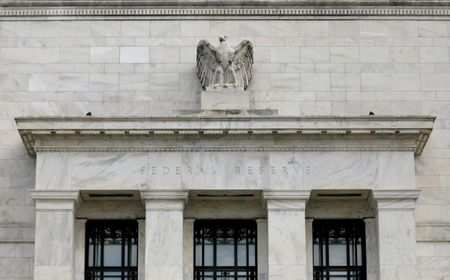Japan’s benchmark Nikkei average opened up 1.14% on Tuesday, while Australia’s S&P/ASX 200 was up 0.2% at 0133GMT. MSCI’s gauge of Asia Pacific stocks outside Japan rose 0.23%.
Hang Seng Index and China’s benchmark CSI300 Index opened higher but fell into negative territory, weighed by property stocks.
A large proportion of S&P 500 companies are due to report results this week, including technology heavyweights Facebook , Apple Inc, Amazon, Microsoft, and Alphabet, which have been the drivers of the market rally this year.
“Of the S&P 500 firms that have reported this season, the net surprise on earnings has been 13%. So it is easy to understand the optimism percolating through risk appetite despite inflation fears,” said ANZ Research in a Tuesday note.
“The economy remains very strong. We expect the recovery will re-accelerate once bottlenecks and COVID concerns subside,” ANZ analysts said in the note. The Dow Jones Industrials and S&P 500 closed at record highs on Monday. Tesla, which jumped 12.66% and breached $1 trillion in market capitalisation, also provided the biggest boost to the S&P 500 and the Nasdaq.
China has said it will roll out a pilot real estate tax in some regions, adding to existing investor concerns about real estate in the mainland.
An index of Hong Kong-listed mainland property firms dropped 4%.
“The market is still going in a strong trend, particularly as it started to digest that Fed will start tapering in November,” said Edison Pun, Senior Market Analyst at Saxo Markets.
“However, we need to watch whether it will put on extra pressure on the Chinese property market when property tax is rolled out. It could hurt consumption in the end if we are seeing an overall downturn on Chinese property prices,” he said. U.S. Treasury yields were lower as uncertainty about when the Federal Reserve would raise rates to curb rising inflation weighed on market sentiment.
The dollar rose 0.1% on Tuesday, recovering from a near one-month trough hit during the previous session.
Oil prices rose on Monday and reached multi-year highs, as tight global supply and strengthening fuel demand in the United States and beyond supported prices.
Brent crude futures slipped 0.03% to $85.96 a barrel, while the U.S. West Texas Intermediate (WTI) crude futures dipped 0.04% to $83.72 a barrel in Tuesday morning trading. Spot gold was down 0.21% to $1,803. per ounce.



